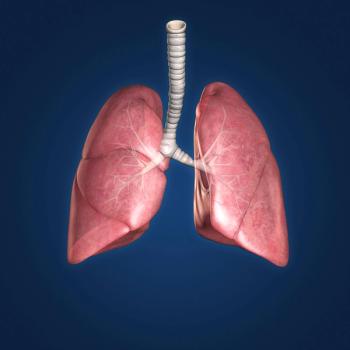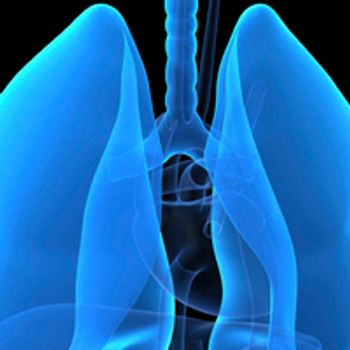
The Pivot Nurse in Oncology (PNO) role appears to make a substantial difference in care for patients being treated for advanced lung cancer, according to a study presented at the European Lung Cancer Congress (ELCC) 2018.

The Pivot Nurse in Oncology (PNO) role appears to make a substantial difference in care for patients being treated for advanced lung cancer, according to a study presented at the European Lung Cancer Congress (ELCC) 2018.

The FDA has granted a priority review designation to dacomitinib for the frontline treatment of patients with EGFR-positive locally advanced or metastatic non–small cell lung cancer (NSCLC), according to Pfizer, the manufacturer of the pan-human EGFR tyrosine kinase inhibitor (TKI).

Therapeutic strategies for treating less-common molecular targets found in non–small cell lung cancer (NSCLC), such as ROS1, NTRK, MET, and HER2, are under development.

The FDA has approved a supplemental biologics license application to add a 4-week dosing schedule for nivolumab (Opdivo) across several of the PD-1 inhibitor’s indications.

As part of a multidisciplinary team, nurses often reference guidelines to assist in treatment decisions for patients with cancer. Now, they also have guidance on how to treat individuals that comprise an underserved population of patients: those living with HIV and cancer.

Smoking prevention programs need to include warnings that the risk of “trying” a cigarette can lead to daily smoking, and that 69% of people in global survey data who have tried a cigarette became smokers.

The FDA has approved durvalumab (Imfinzi) for the treatment of patients with locally advanced, unresectable stage III non–small cell lung cancer (NSCLC) who have not progressed following chemoradiotherapy.

Pfizer announced that the FDA has granted a priority review to a new drug application for lorlatinib, an ALK inhibitor, for use in patients with ALK-positive metastatic non–small cell lung cancer (NSCLC) who have progressed on 1 or more ALK tyrosine kinase inhibitors.

Patients whose cancers have metastasized to the brain or central nervous system are often excluded from clinical trials, but now, new guidelines may help researchers identify appropriate clinical trials in which these people may be included.

Some underprivileged and minority groups are underrepresented in lung cancer clinical trials, which can affect how and whether they receive appropriate care.

Approval opens up treatment possibilities for lung cancer patients with rare genetic mutations.

Cisplatin, a platinum-based chemotherapy agent that is used to treat testicular cancer, non-small cell lung cancer, bladder cancer, cervical cancer, ovarian cancer and head and neck cancer, has been found to cause a significant amount of hearing loss in patients, according to a recent article published in Nature Communications.

The FDA has granted a priority review to a supplemental new drug application (sNDA) for the use of osimertinib as a first-line treatment for patients with non-small cell lung cancer (NSCLC) whose tumors harbor EGFR mutations.

“Immunotherapy is a new option for patients and is well established,” said George R. Blumenschein, MD. “We are refining how we use it. There will be a number of additional refinements as we have the new data that will be coming forward in the next few months.”


Genes and gender may play a role in who is more likely to experience chemotherapy-related fatigue, according to a recent study.


The FDA announced today that it has approved the first biosimilar for the treatment of multiple types of cancer.

"This is a clear improvement in the outcome, with increased PFS—by about 11 months—consistent improvement in response rate, and decreases in the development of metastatic disease," said lead investigator Luis Paz-Ares, MD, chair, Medical Oncology Department, Hospital Universitario Doce de Octubre.

The phase III ATLANTIS trial is testing the investigational synthetic analogue lurbinectedin in combination with doxoubicin for use in patients with recurrent small cel lung cancer (SCLC).

Kerry Nichols, RN, BSN, OCN, explains their nurse navigator-led smoking cessation program.

A side-effect of some lung cancer treatments is turning some patient's gray hair darker again.

Hair repigmentation in patients receiving anti-PD-1/anti-PD-L1 treatment may be a response marker.

A recent study found that those who survived the Holocaust had an increased rate of lung and colorectal cancer.

Patients with lung cancer who received low-dose CT scans had a 15% to 20% lower risk of death from their disease versus those who had standard chest X-rays, which has led to screening guidelines.